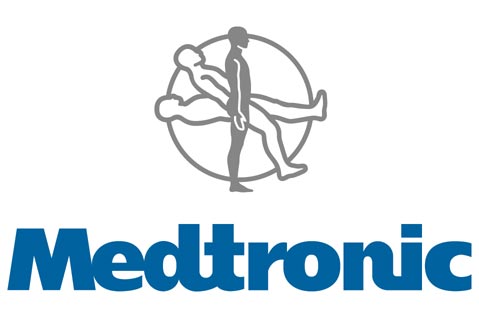
Medical device giant Medtronic (NYSE:MDT) is making fast work of its U.S. renal denervation program, today announcing FDA approval to begin enrolling lower-risk patients in the next phase of its SYMPLICITY clinical trials.
The new SYMPLICITY HTN-4 trial is the 1st in the U.S. to investigate renal denervation in treatment of patients with less severe hypertension, those whose systolic blood pressure ranges between 140 and 160 mmHg and is uncontrolled despite treatment with at least 3 drugs. The 1st patient was enrolled at Duke University Medical Center, according to a Medtronic statement.
The news marks more progress for Minnesota’s Medtronic, which last week unveiled new 3-year results from Symplicity HTN-2, a randomized, controlled but un-blinded study of 106 patients in Europe, Australia and New Zealand. The device maker is also slated this coming spring to unveil highly anticipated results from Symplicity HTN-3, the 1st controlled, randomized and blinded clinical trial examining renal denervation.
The FDA granted Medtronic Investigational Device Exemption to launched SYMPLICITY HTN-4, a randomized, controlled and blinded clinical trial of up to 580 patients from around 100 clinical sites. The study will serve not only to advance Medtronic’s Symplicity system toward U.S. approval but may help generally validate renal denervation in treatment of patients with less severe hypertension.
Feature: Deflating the hype: Are we setting renal denervation up for disappointment?
Medtronic is a front-runner in the race to bring renal denervation technology to the U.S., although the market has lost some of its shine. The technology, once a darling of medical device conferences and industry headlines, has lost some of its charm over the last year as the market proved less lively than previously expected. Some of the reports issued during this year’s TCT meeting may help rejuvenate interest in the procedure, which researchers have suggested may have applications in ailments ranging from chronic kidney disease to diabetes and obstructive sleep apnea.
The prevailing wisdom in 2010, when renal denervation 1st hit Europe, was that the market would be worth over $1 billion by 2020, but those projections failed to account for the significant barriers the technology faces, according to analysts for GlobalData.
The primary hurdles for renal denervation technologies are the lack of reimbursement, the need for a novel referral pattern for getting patients from their front-line doctors to interventional cardiologists and radiologists and the lack of sufficient clinical trial data supporting long-term efficacy of the therapy. That could be bad news for industry big-dogs such as Medtronic, Boston Scientific (NYSE:BSX) and St. Jude Medical (NYSE:STJ), which have devoted significant resources to their renal denervation technologies.

